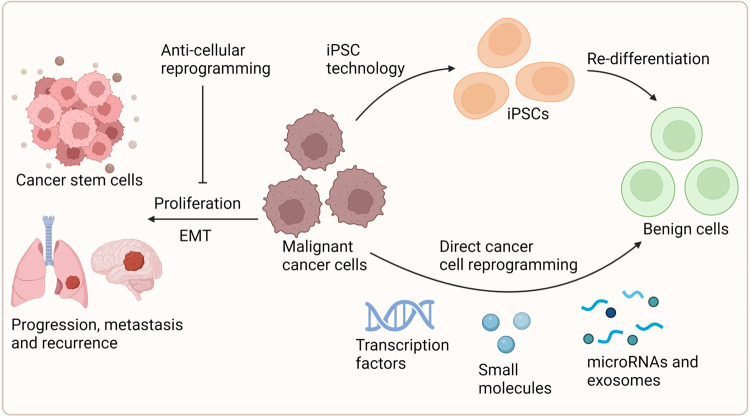Fig. 6.
The mechanisms for cellular reprogramming in cancer. Cancer cell reprogramming treatment aims to convert the malignancy to benignity or provide a therapeutic target to inhibit the formation of CSCs. Yamanaka factors-mediated iPSCs technology has been recognized as a common method for the conversion of cancer cells to benign pluripotent cells, and cancer cells-derived iPSCs can re-differentiate into functional cells with less malignancy and free of tumorigenic potential. Cancer cells also can be directly reprogrammed into benign cells via various reprogramming strategies, such as lineage-specific factors, small molecules, microRNAs, and exosomes. Responsive cellular reprogramming based on EMT contributes to CSCs formation, which mediates the initial, progression, metastasis, and post-treatment recurrence. The role of cellular reprogramming in the formation of CSCs suggests that anti-cellular reprogramming strategies may be considered as a therapeutic alternative in cancer treatment. EMT Epithelial–mesenchymal transition. Created with BioRender.com

